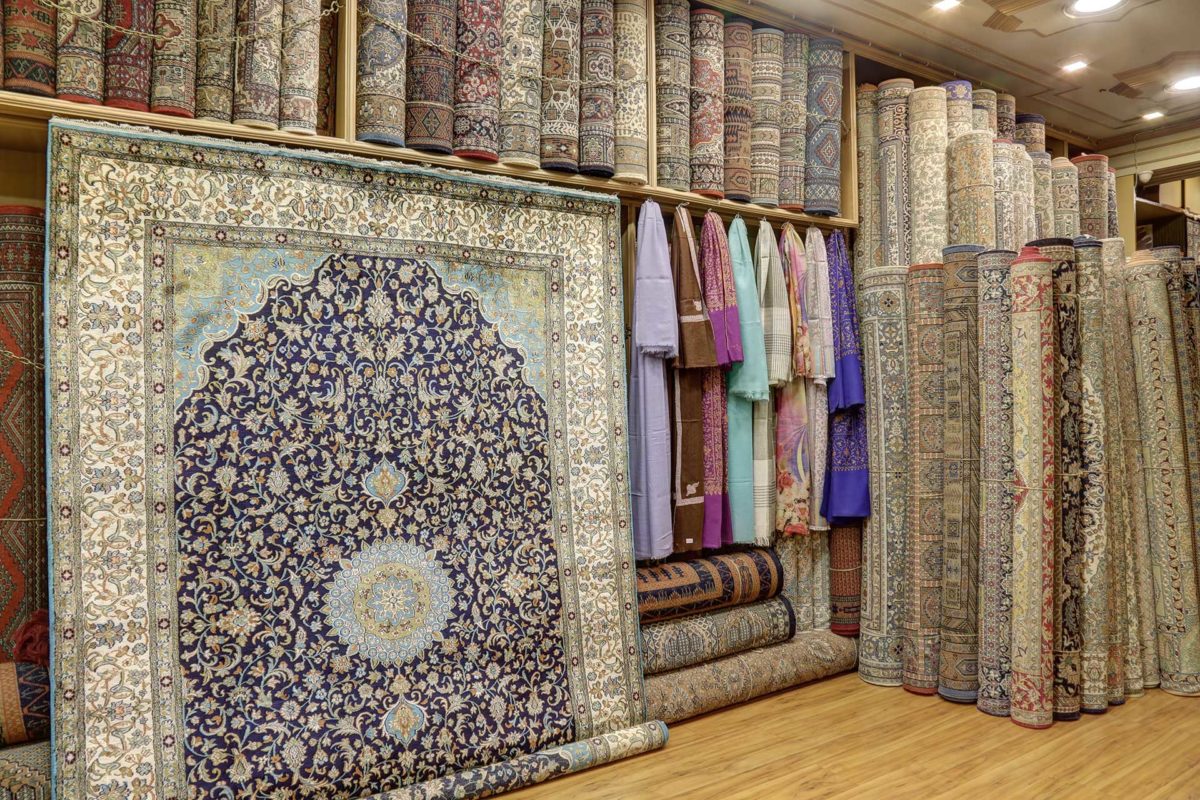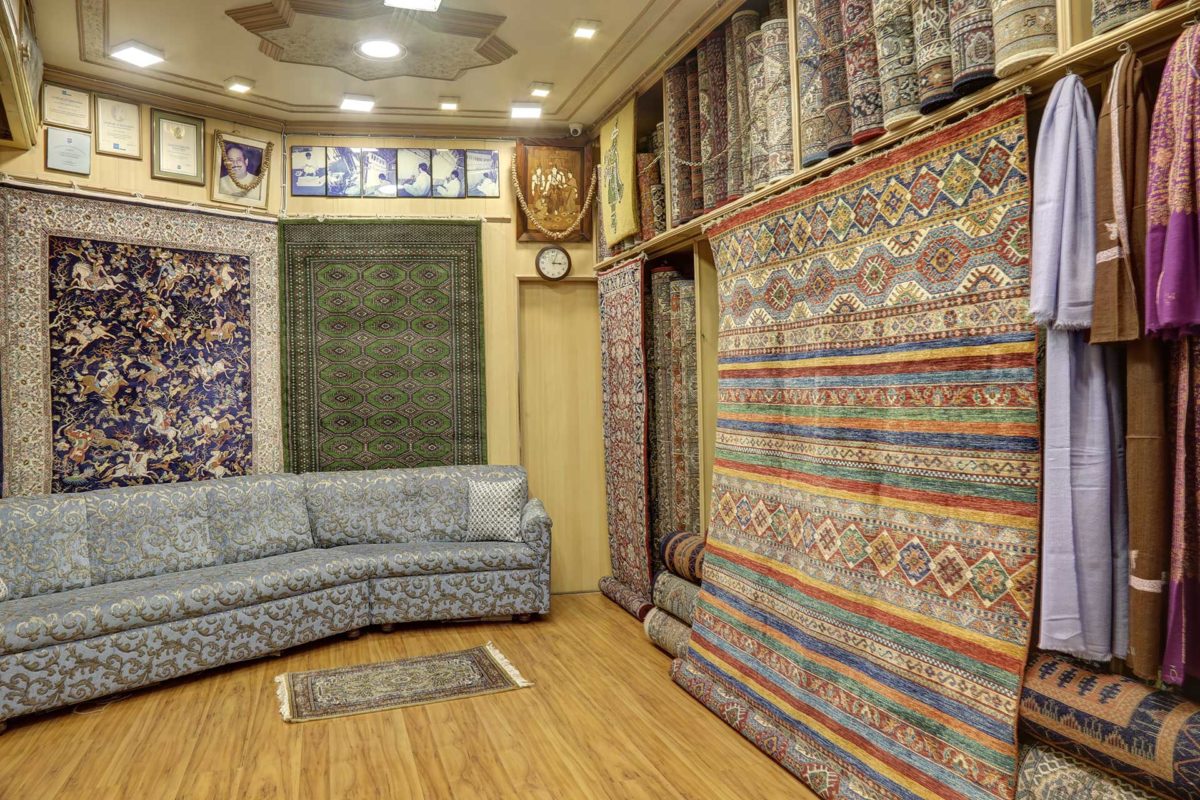Introduction:
In recent years, the global demand for handmade Kashmiri rugs has surged, with Western consumers increasingly drawn to the intricate designs, vibrant colors, and rich cultural heritage embodied in these exquisite textiles.
We have been at the forefront of the development of the Kashmiri rugs for the past 30+ years.
Our showroom at World Trade Center; in Mumbai hosts 2000+ Kashmiri rugs; each of them is handmade and crafted with great care and passion.
We have been shipping to the Western world for doorstep services; via our long-term logistics partner FedEx.
However, amidst this growing popularity, questions arise regarding the ethical implications of Western fascination with Kashmiri craftsmanship.
Owning a handmade prayer rug connects you with a centuries-old tradition, bringing a sense of authenticity and spirituality to your prayers.
Larger carpets naturally cost more. For a room-sized oriental handmade hand-knotted carpet, you might need to budget between $3,000 and $15,000, depending on the quality and material.
Wondering how to spot genuine Kashmiri rug? Our latest guide dives deep into the exquisite craftsmanship, unique patterns, and luxurious materials that set these masterpieces apart from imitations. Discover the secrets to making an informed purchase and bringing home an authentic piece of Kashmir’s rich heritage
Is the Western demand for Kashmiri rugs a sincere appreciation of cultural artistry, or does it border on cultural appropriation?
In this thought-provoking article, we delve into the complexities of this issue, exploring the dynamics of cultural exchange, economic empowerment, and ethical consumption.
Our Showrroom: 2000+ Ready-in-Stock Kashmiri Rugs »


The Rich Tradition of Kashmiri Handmade Rugs:
Kashmiri handmade rugs have a centuries-old tradition rooted in the cultural heritage of the Kashmir Valley, renowned for its skilled artisans and time-honored weaving techniques.
These rugs are more than mere floor coverings; they are intricate works of art that reflect the region’s history, craftsmanship, and artistic expression.
From the iconic paisley motifs to the vibrant hues derived from natural dyes, each Kashmiri rug is imbued with a sense of cultural identity and pride.
Western Fascination with Kashmiri Rugs:
In the Western world, Kashmiri handmade rugs have captured the imagination of interior designers, collectors, and consumers alike.
Our managing partner Rohit Sharma has been instrumental in guiding retail customers to select the most appropriate rugs for their living rooms, bedrooms, and corridors.
The allure of these rugs lies in their exquisite craftsmanship, timeless beauty, and ability to add warmth and character to any space.
Western and Indian consumers are drawn to the authenticity and uniqueness of Kashmiri rugs, appreciating the skill and artistry behind each hand-knotted masterpiece.
Cultural Appreciation vs. Appropriation:
The line between cultural appreciation and appropriation can be blurred, particularly in the context of consumerism and global trade.
While genuine appreciation involves respecting and honoring the cultural origins of a product, appropriation occurs when cultural elements are commodified, stripped of their context, and exploited for profit without proper attribution or respect for the originating culture.
In the case of Kashmiri handmade rugs, it is essential to consider the ethical implications of Western demand and consumption.
Empowering Artisans and Communities:
One perspective on the Western demand for Kashmiri rugs is that it provides economic opportunities and empowerment for Kashmiri artisans and communities.
By supporting the market for authentic handmade rugs, Western consumers contribute to the livelihoods of skilled artisans and the preservation of traditional craftsmanship.
This mutually beneficial exchange fosters cultural exchange and cross-cultural appreciation, enriching both the artisans and the consumers.
Promoting Ethical Consumption:
At the same time, it is crucial to promote ethical consumption practices and raise awareness about the cultural significance and integrity of Kashmiri handmade rugs.
Western consumers should educate themselves about the provenance of the rugs they purchase, ensuring that they are ethically sourced and produced by fair trade principles.
Additionally, efforts should be made to empower Kashmiri artisans and promote their rights, including fair compensation, safe working conditions, and recognition of their cultural heritage.
Conclusion:
The Western demand for Kashmiri handmade rugs raises complex questions about cultural appreciation, appropriation, and ethical consumption.
While the growing popularity of these rugs signifies a genuine appreciation for Kashmiri craftsmanship and cultural heritage, it also underscores the need for responsible consumer behavior and respect for the originating culture.
By fostering dialogue, promoting ethical consumption, and supporting initiatives that empower Kashmiri artisans, we can ensure that the demand for Kashmiri rugs is grounded in genuine appreciation and mutual respect, enriching both the artisans and the consumers alike.


